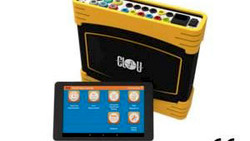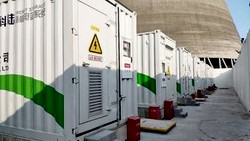As the energy sector steers towards a more sustainable and decentralized future, microgrids have emerged as a pivotal player. These small-scale power systems deliver energy independence, resilience, and adaptability, making them integral to the energy landscape. However, the effective operation of a microgrid is contingent on the accuracy and reliability of a lesser-discussed component: energy metering.
Understanding Energy Metering
Energy metering refers here to the process of measuring, recording, and communicating the amount of electricity consumed or produced by a unit within the energy network. This can be a residential household, a commercial establishment, or a renewable energy source like a wind turbine or solar panel.
Energy meters provide information on various parameters such as active power, reactive power, power factor, voltage, and current. They are the linchpin for demand response, energy management, and billing processes. Without them, it's like driving a car without an instrumentation.
How Energy Metering Underpins Microgrid Operations
Microgrids are complex ecosystems comprising various energy producers and consumers. They are designed to operate in tandem with the main grid (grid-connected mode) or independently (island mode). Therefore, it is essential to coordinate and optimize energy flow within a microgrid.
Energy metering plays a crucial role in three main areas: load management, renewable integration, and grid stability.
Load Management
With the real-time data provided by energy meters, microgrid operators can effectively manage and balance the load within the network. This ensures that the demand for power does not exceed the supply, preventing brownouts or blackouts. Moreover, with the advent of smart meters, operators can leverage data analytics to predict energy consumption patterns and optimize energy distribution.
Renewable Integration
As microgrids frequently incorporate renewable energy sources, energy metering is essential to manage the variable and intermittent nature of these sources. For example, solar energy production can fluctuate due to cloud cover, and wind energy production can vary with wind speed. Energy meters provide real-time data, enabling operators to adjust the energy mix and prevent possible disruptions.
Grid Stability
In a grid-connected mode, microgrids need to harmonize with the main grid's operational parameters. Energy metering provides critical data to ensure a smooth transition between grid-connected and island modes, maintaining grid stability and preventing potential power quality issues.

(symbol image, credit CLOU)
Energy Storage and Microgrid Operations
Energy storage plays a pivotal role in the success of microgrids, enabling efficient energy management and enhancing grid reliability. By integrating energy storage systems within microgrids, excess energy generated during periods of low demand can be stored for later use during peak demand periods or when renewable energy sources are not actively generating power.
This allows microgrids to balance supply and demand, mitigate intermittency issues, and ensure uninterrupted power supply. Energy storage systems also facilitate grid stabilization by providing fast response times and frequency regulation. Moreover, in the event of a grid outage, energy storage can serve as a backup power source, ensuring critical loads continue to operate seamlessly. With the ability to store and dispatch energy strategically, energy storage systems are instrumental in optimizing microgrid operations and unlocking the full potential of a decentralized and resilient energy infrastructure.
Billing and Cost Control
Besides all the technical advantages that energy metering brings to microgrid operations, it is crucial to keep cost control in mind. While microgrids offer numerous benefits such as increased resilience, localized energy generation, and grid independence, the economic feasibility and financial performance of these systems are paramount considerations for decision-makers and investors.
Effective energy metering not only ensures efficient load management and grid stability but also plays a pivotal role in billing accuracy, cost allocation, and overall financial control. By focusing on cost control through energy metering, microgrid operators can optimize their financial performance while delivering sustainable and reliable energy solutions.
- Accurate Billing and Revenue Management
Energy metering plays a crucial role in accurate billing and revenue management within microgrids. By precisely measuring and monitoring energy consumption, generation, and storage, energy metering enables fair and transparent billing practices. Microgrid operators can bill customers based on their actual energy usage, ensuring that each party pays for the energy they consume. - Granular Consumption Data
Energy metering provides granular consumption data that allows microgrid operators to analyse and understand energy usage patterns at a detailed level. This data helps identify high-demand periods, peak usage hours, and energy-intensive processes within the microgrid. With this information, operators can implement strategies to optimize energy consumption and reduce costs. - Time-of-Use Pricing
Energy metering enables the implementation of time-of-use pricing models, where energy costs vary based on the time of day. By accurately measuring and recording energy usage during different time periods, microgrid operators can incentivize customers to shift their energy consumption to off-peak hours when energy costs are lower. This helps balance the load and reduces strain on the microgrid during peak demand times, ultimately lowering overall energy costs. - Demand Response Programs
Energy metering data is invaluable for implementing demand response programs within microgrids. During periods of high demand or grid constraints, microgrid operators can send signals to customers, encouraging them to reduce their energy consumption temporarily. Energy metering enables the measurement and verification of energy reduction during these events, allowing operators to provide financial incentives or credits to participating customers. This not only helps control costs during peak demand but also enhances the overall reliability and stability of the microgrid. - Cost Allocation and Investor Confidence
For investors in microgrid projects, accurate energy metering is essential for cost allocation and financial planning. Energy metering data provides insights into the energy production and consumption profiles of different customers or zones within the microgrid. This information allows investors to assess the revenue potential and evaluate the financial viability of the project. It also instils confidence in investors by providing them with accurate data for performance monitoring and return on investment analysis. - Energy Efficiency Tracking
Energy metering is a valuable tool for tracking the impact of energy efficiency measures within the microgrid. By comparing energy consumption before and after implementing efficiency upgrades, operators can quantify the energy savings achieved and their corresponding cost reductions. This data can be used to showcase the financial benefits of energy efficiency investments to stakeholders, including decision-makers and investors.
The Road Ahead
As the energy sector continues to evolve, the importance of energy metering in microgrids is set to increase. With advancements in artificial intelligence and machine learning, we can expect more sophisticated energy management systems that can utilize real-time data to optimize microgrid operations further. Moreover, as blockchain technology matures, we could see decentralized energy trading platforms where prosumers can sell their excess power directly to consumers.
Takeaway
Energy metering is a fundamental component of microgrid operations. It underpins load management, facilitates renewable integration, ensures grid stability, and enables efficient grid integration.
If you have any questions regarding our microgrid and metering solutions, we encourage you to reach out to us. Our team of experts is readily available to provide answers and guidance. We also invite you to share your thoughts, experiences, and insights with our readers in the comments section below. Together, let's harness the power of energy metering in microgrid operations and pave the way for a sustainable and cost-effective energy future.
Editor's note: This article was originally published in September 2023 and has been updated for comprehensiveness.





All comments are moderated before being published. Inappropriate or off-topic comments may not be approved.